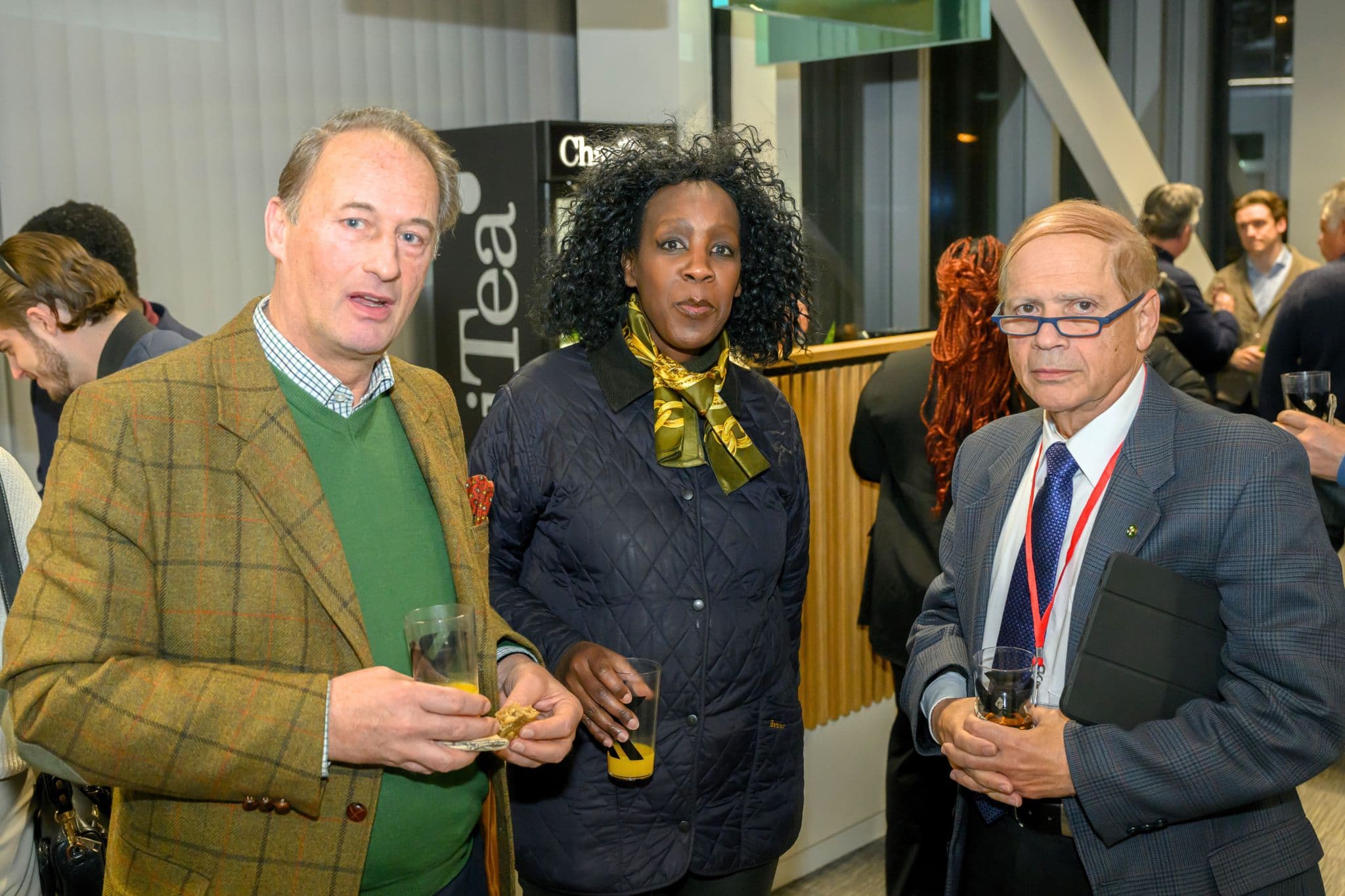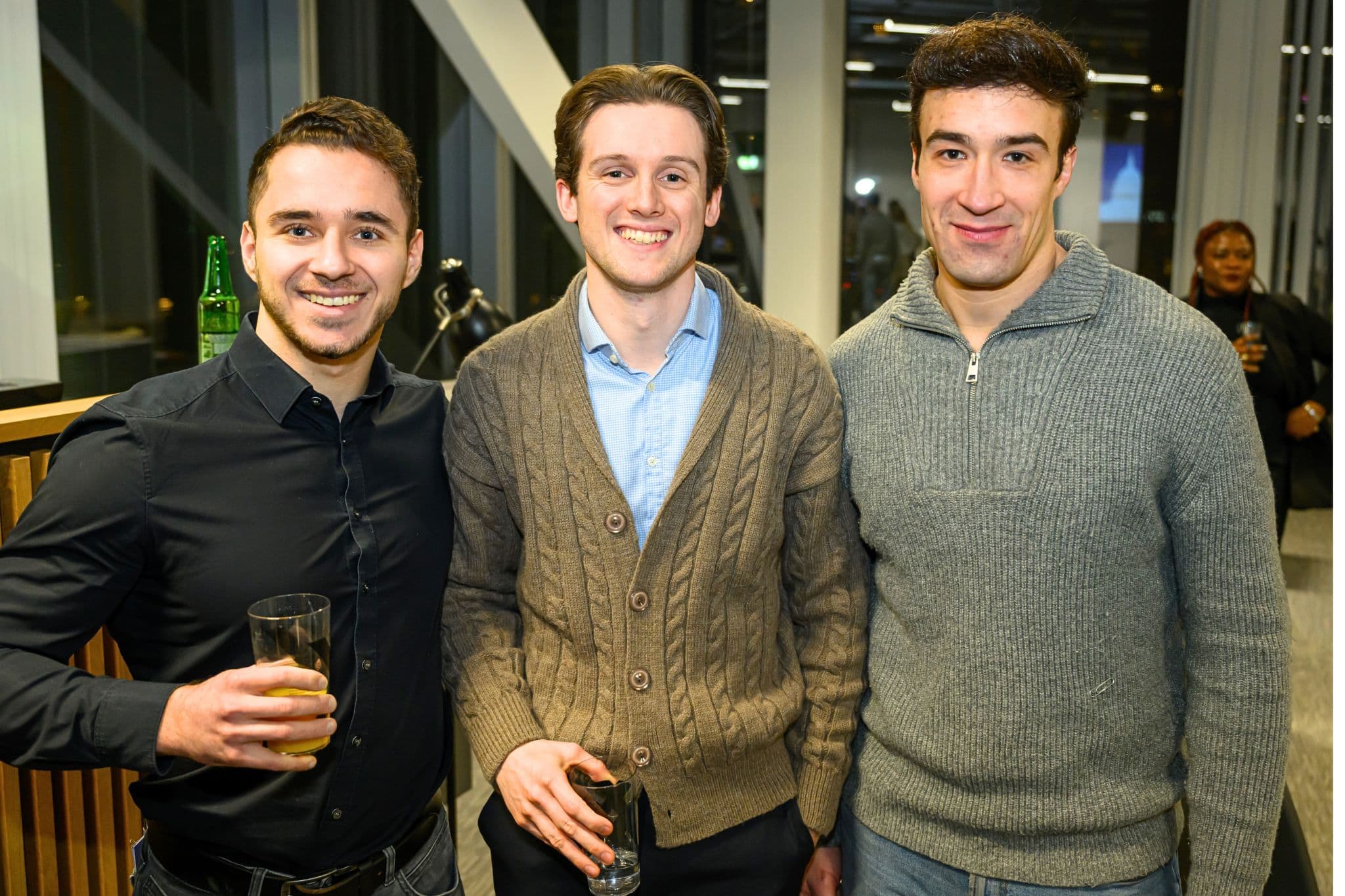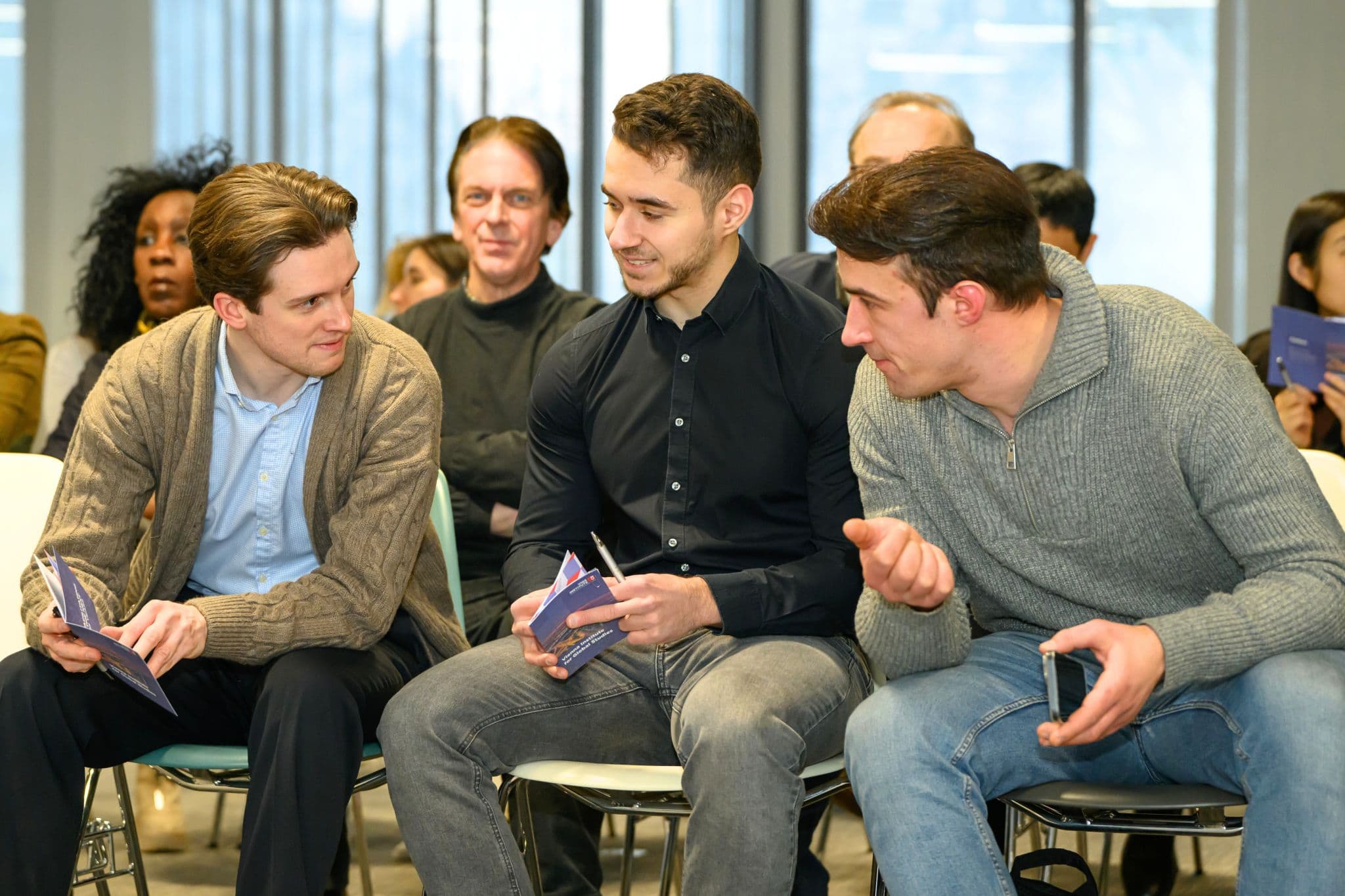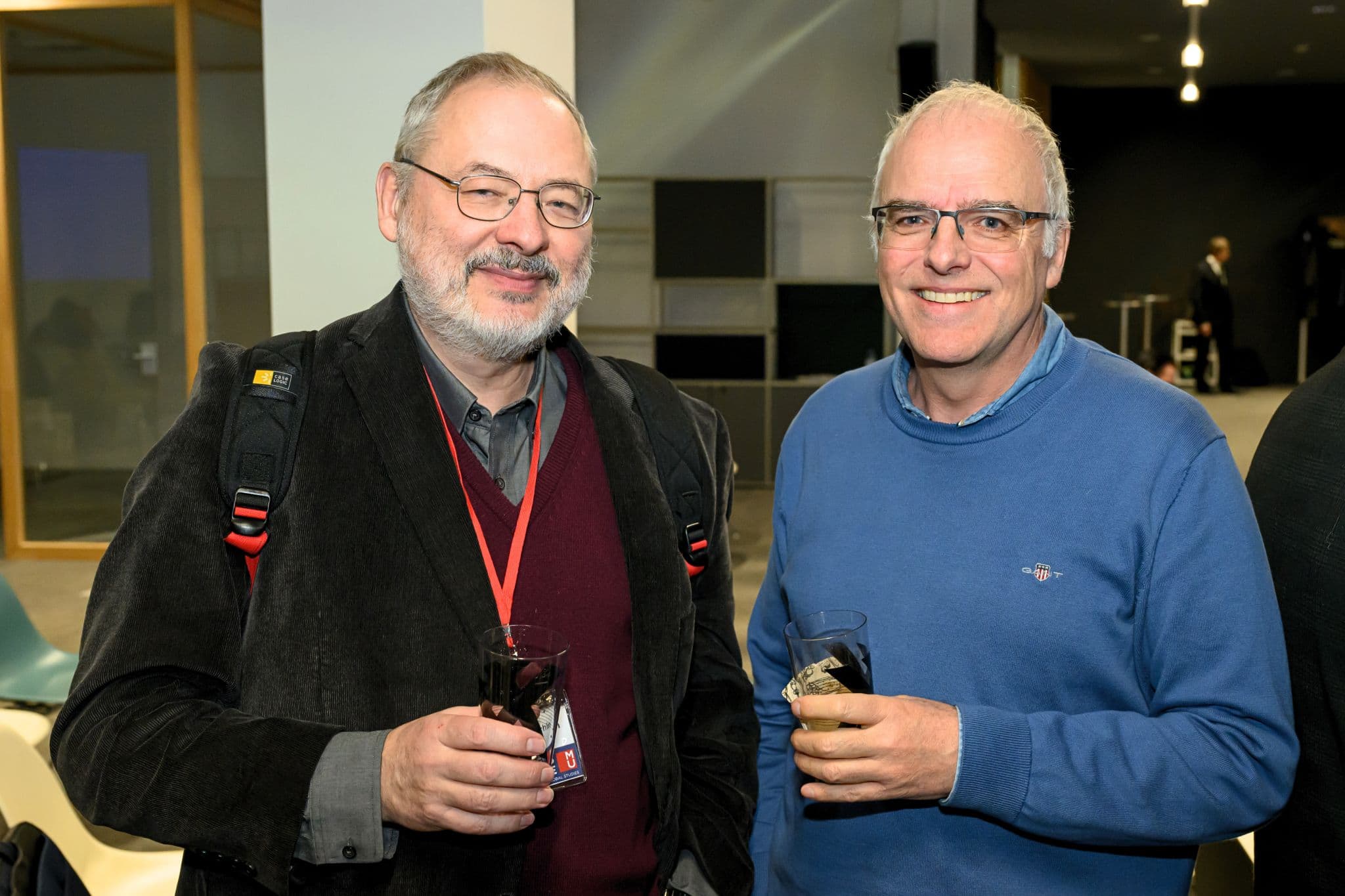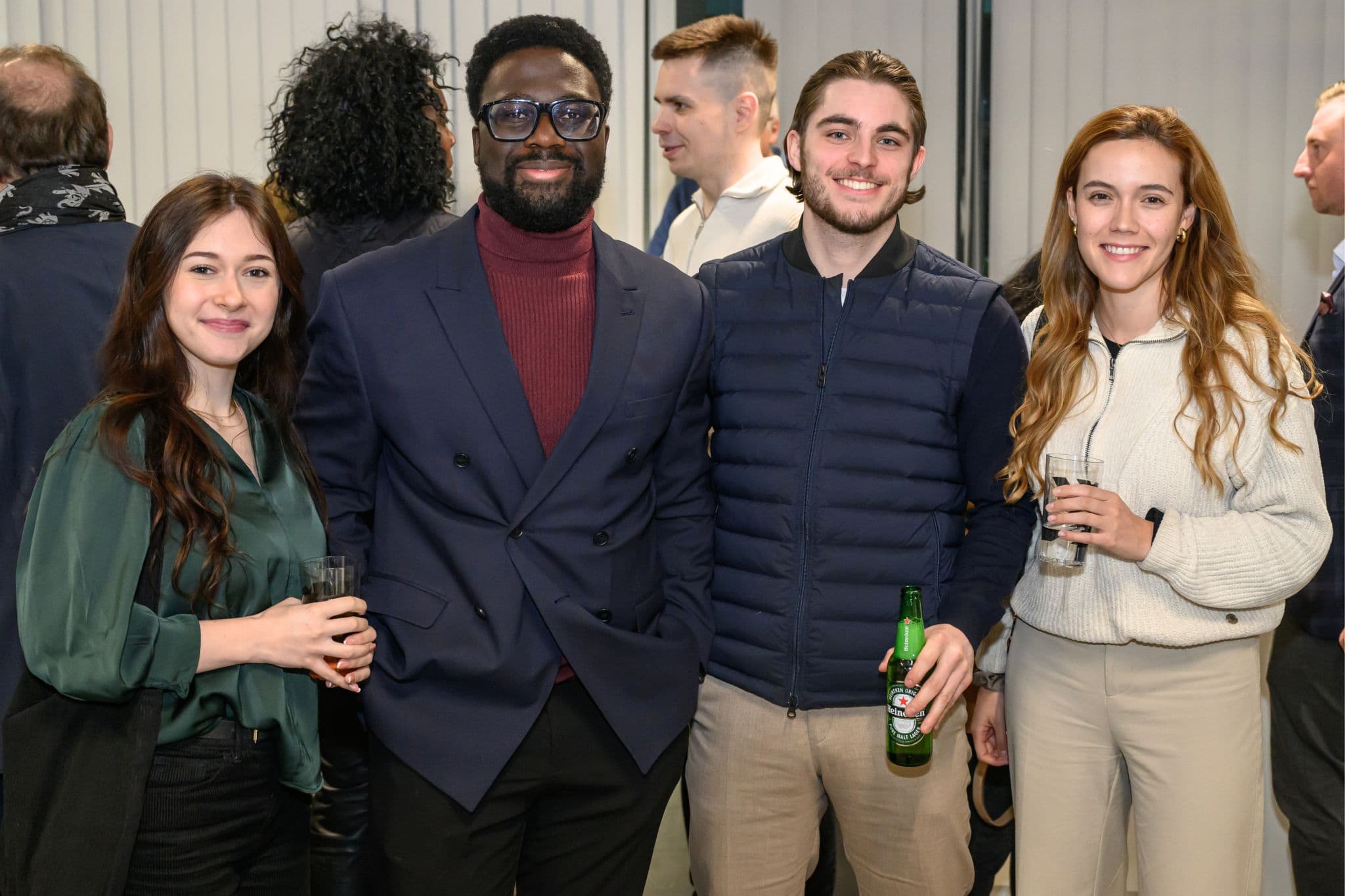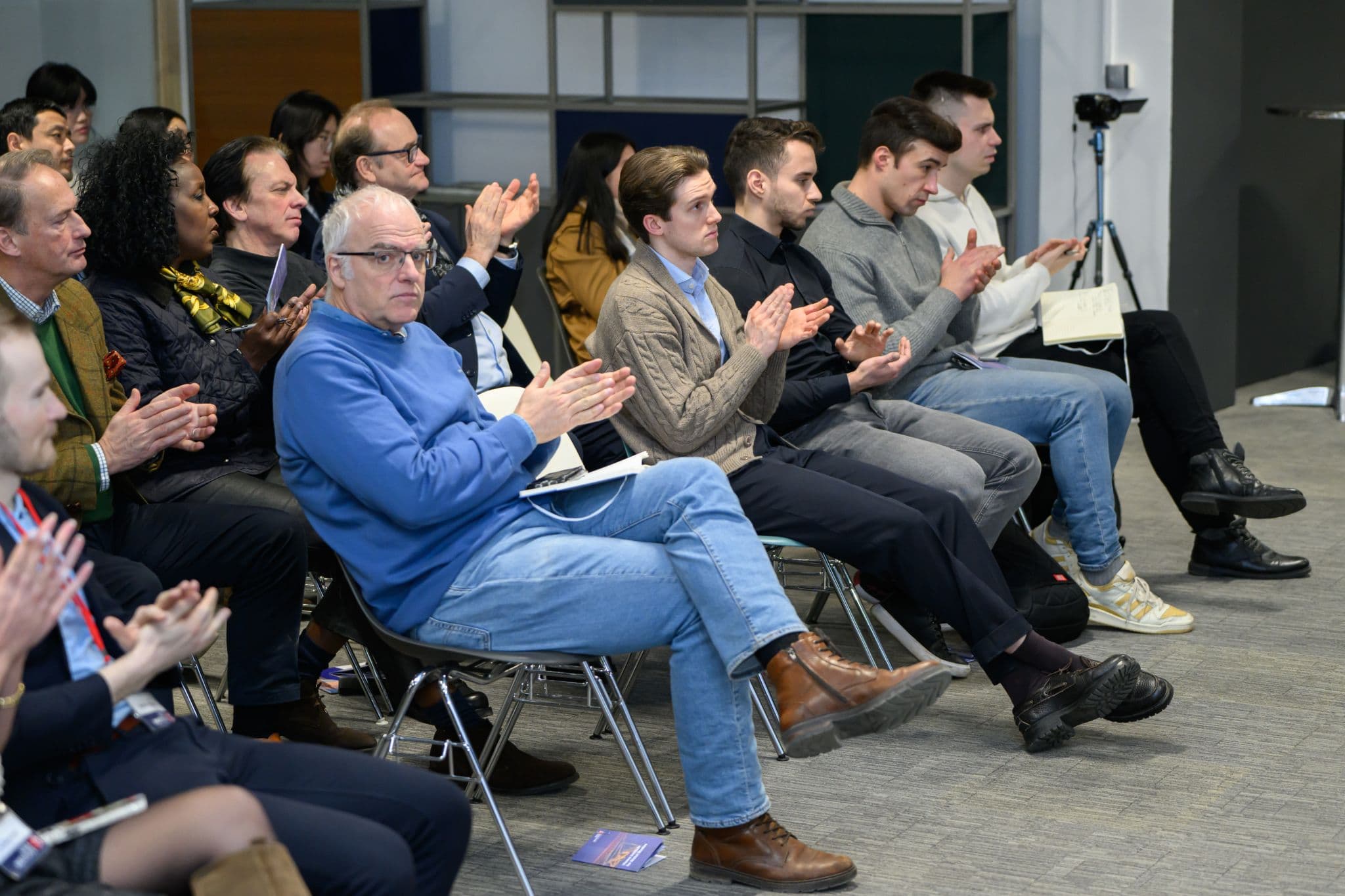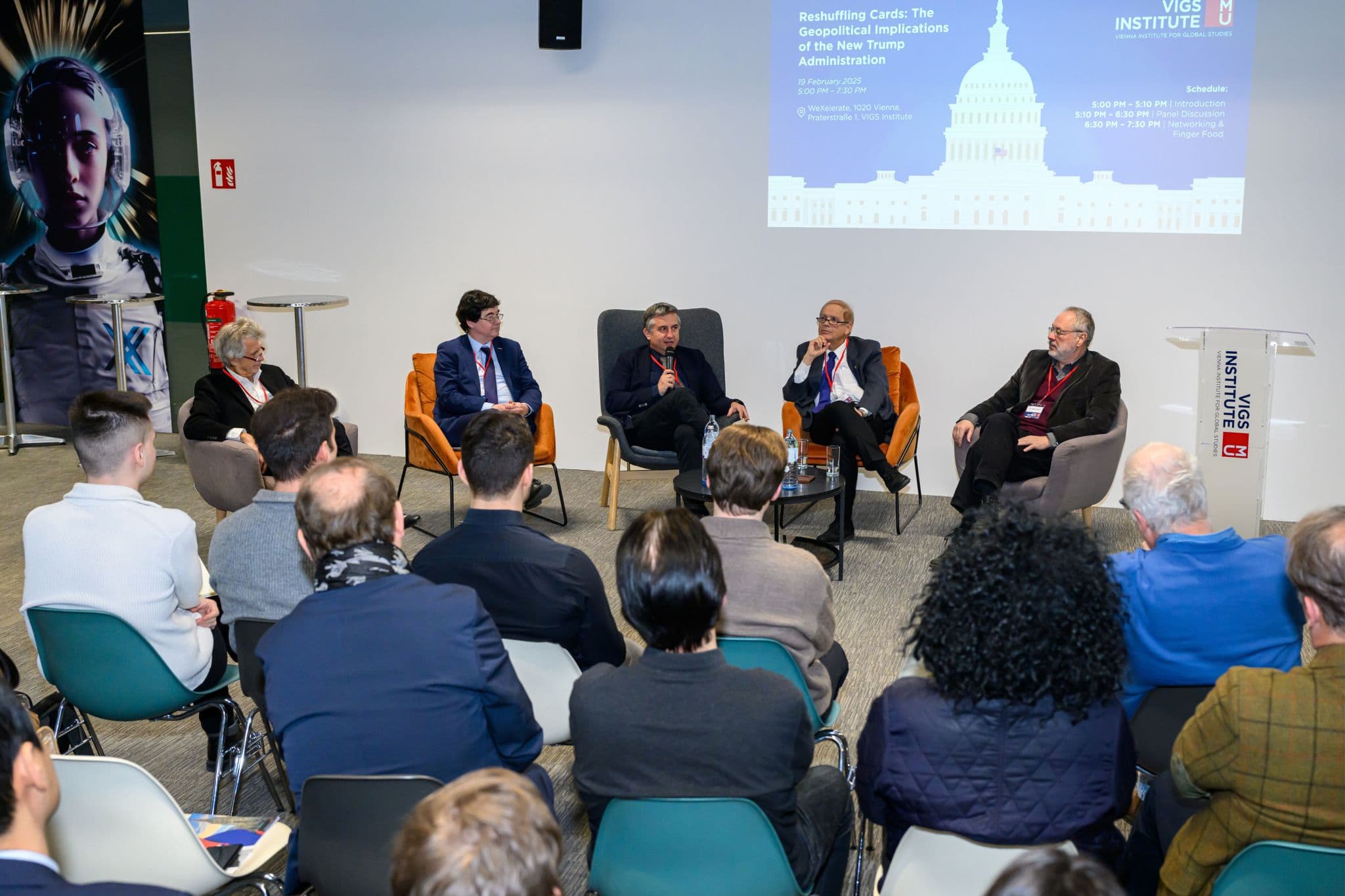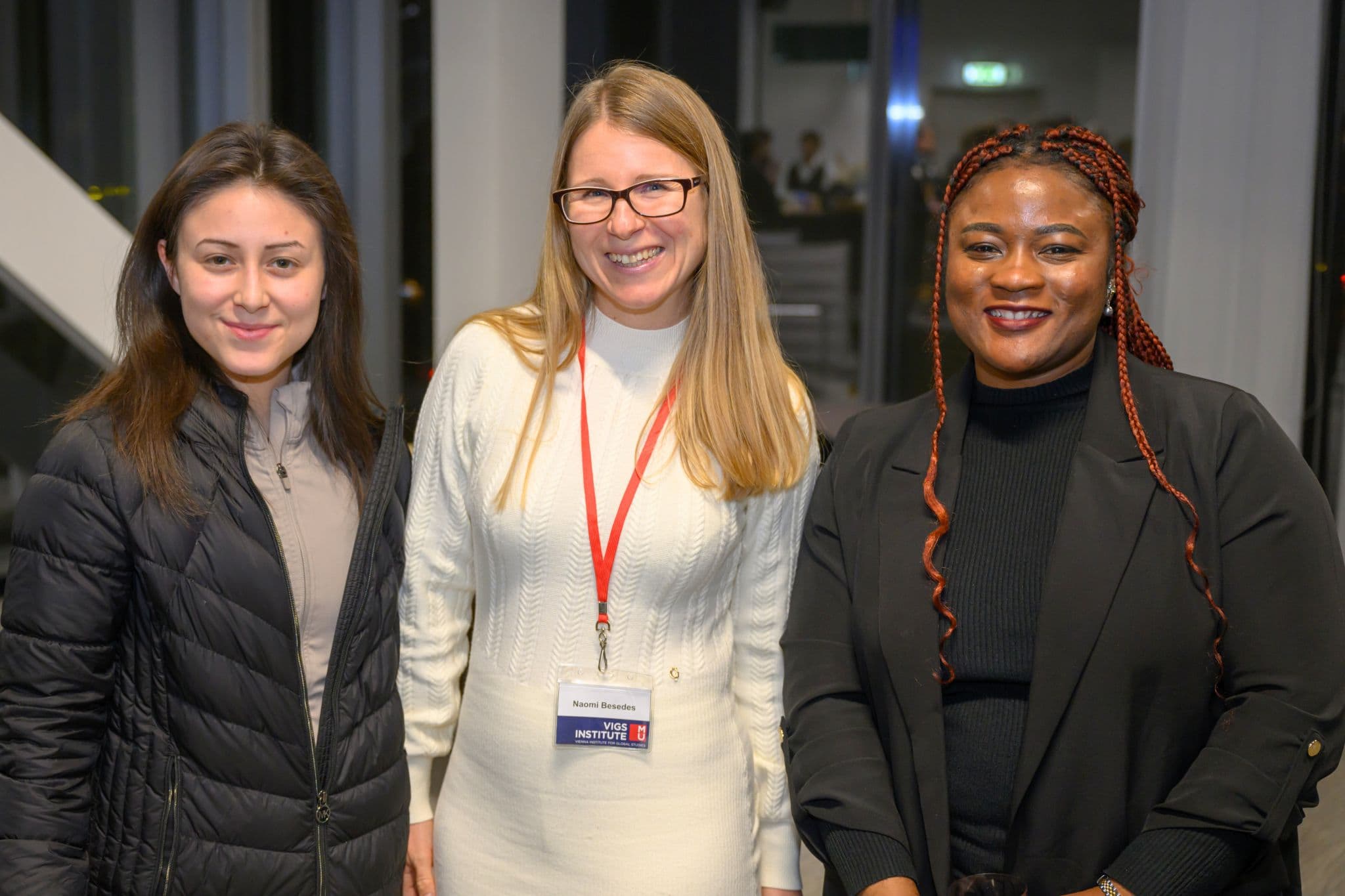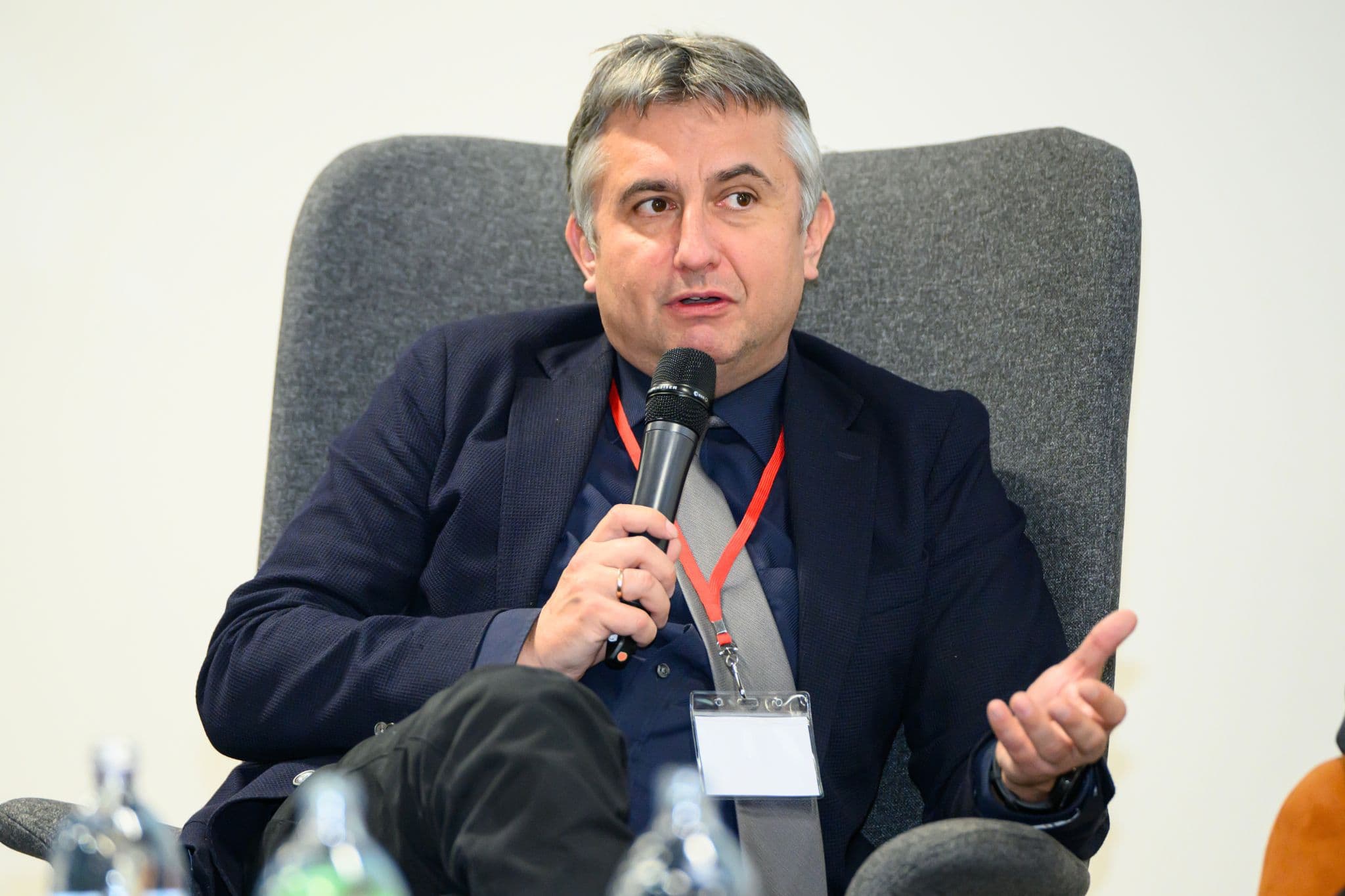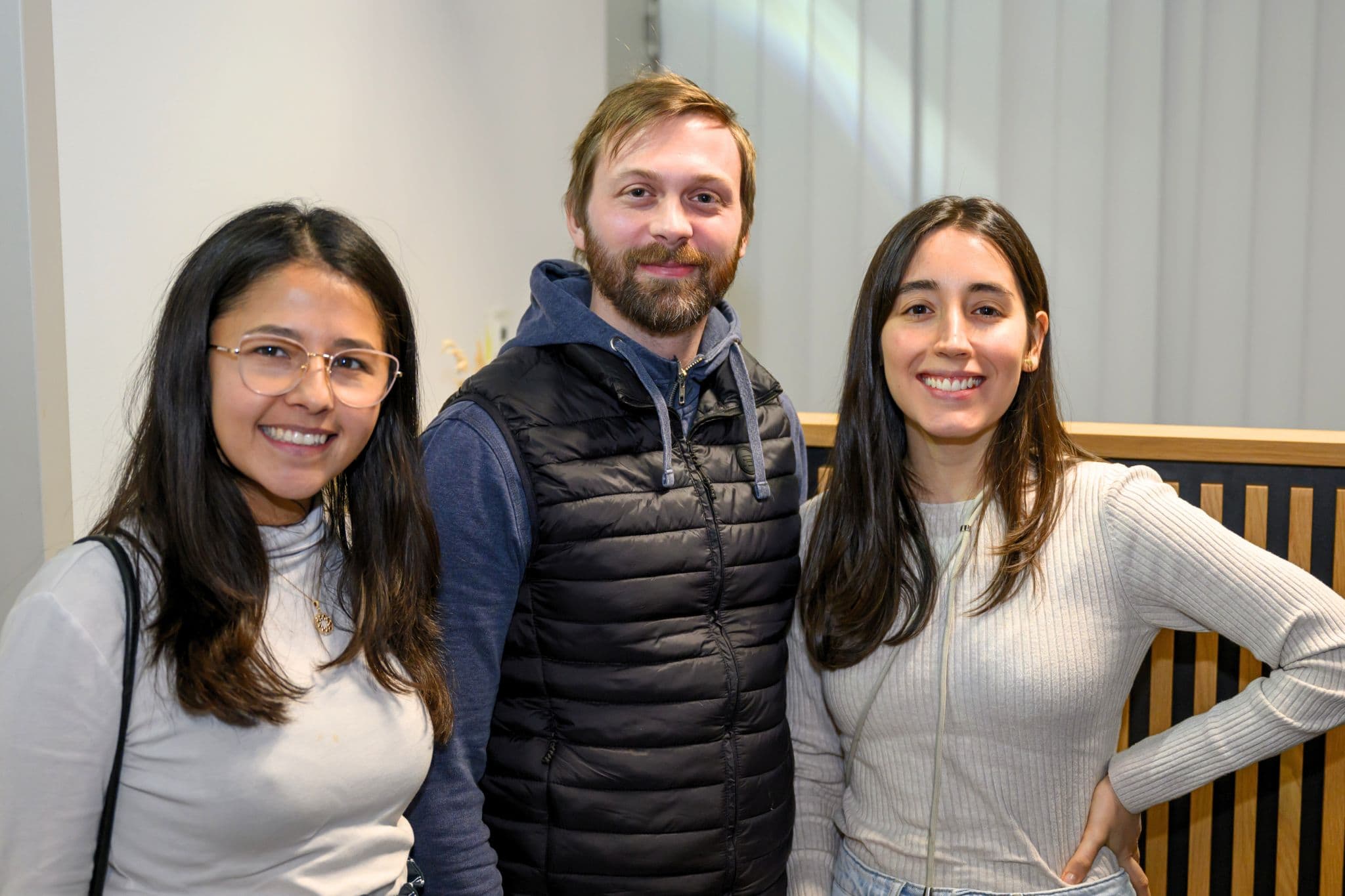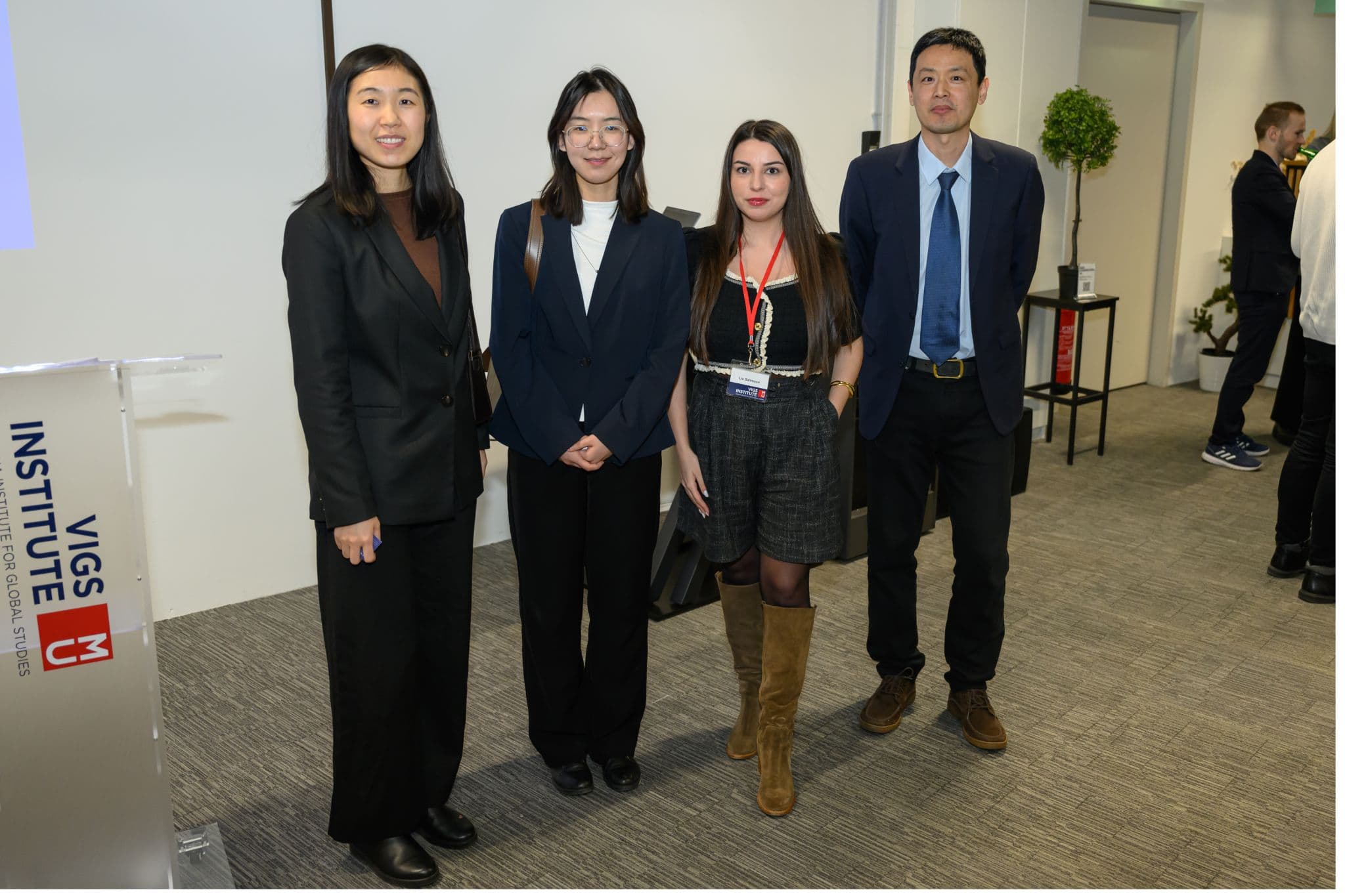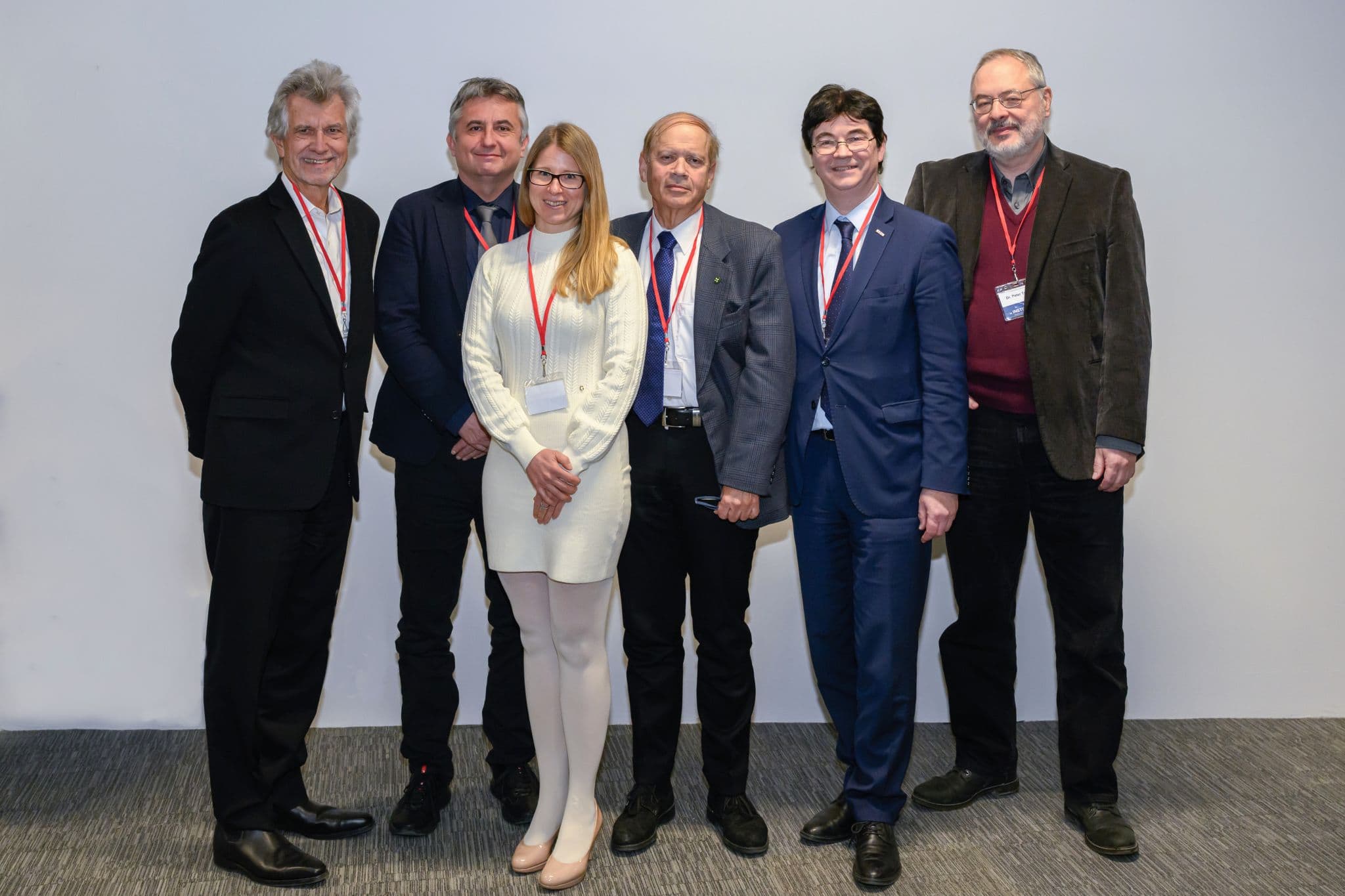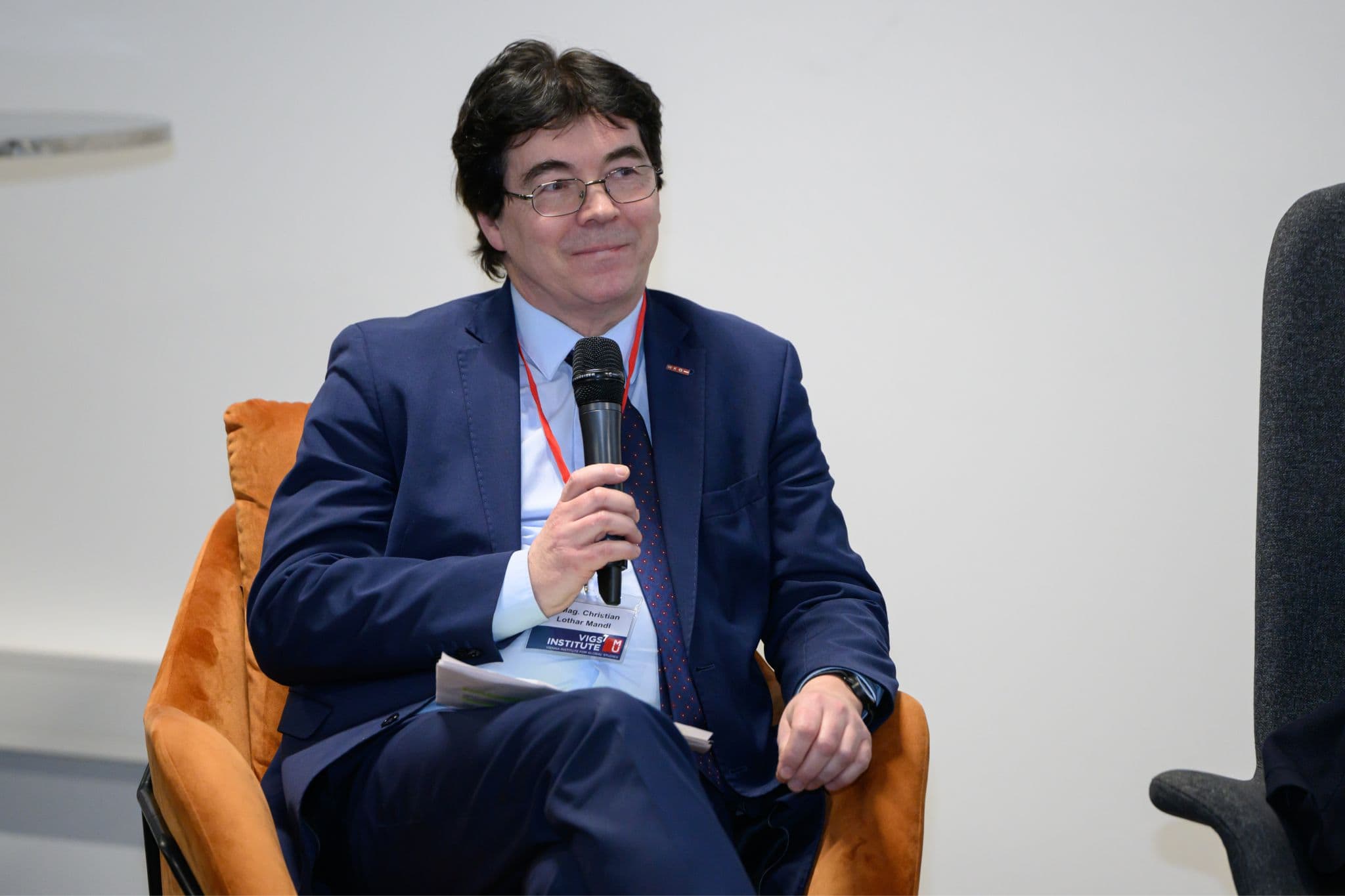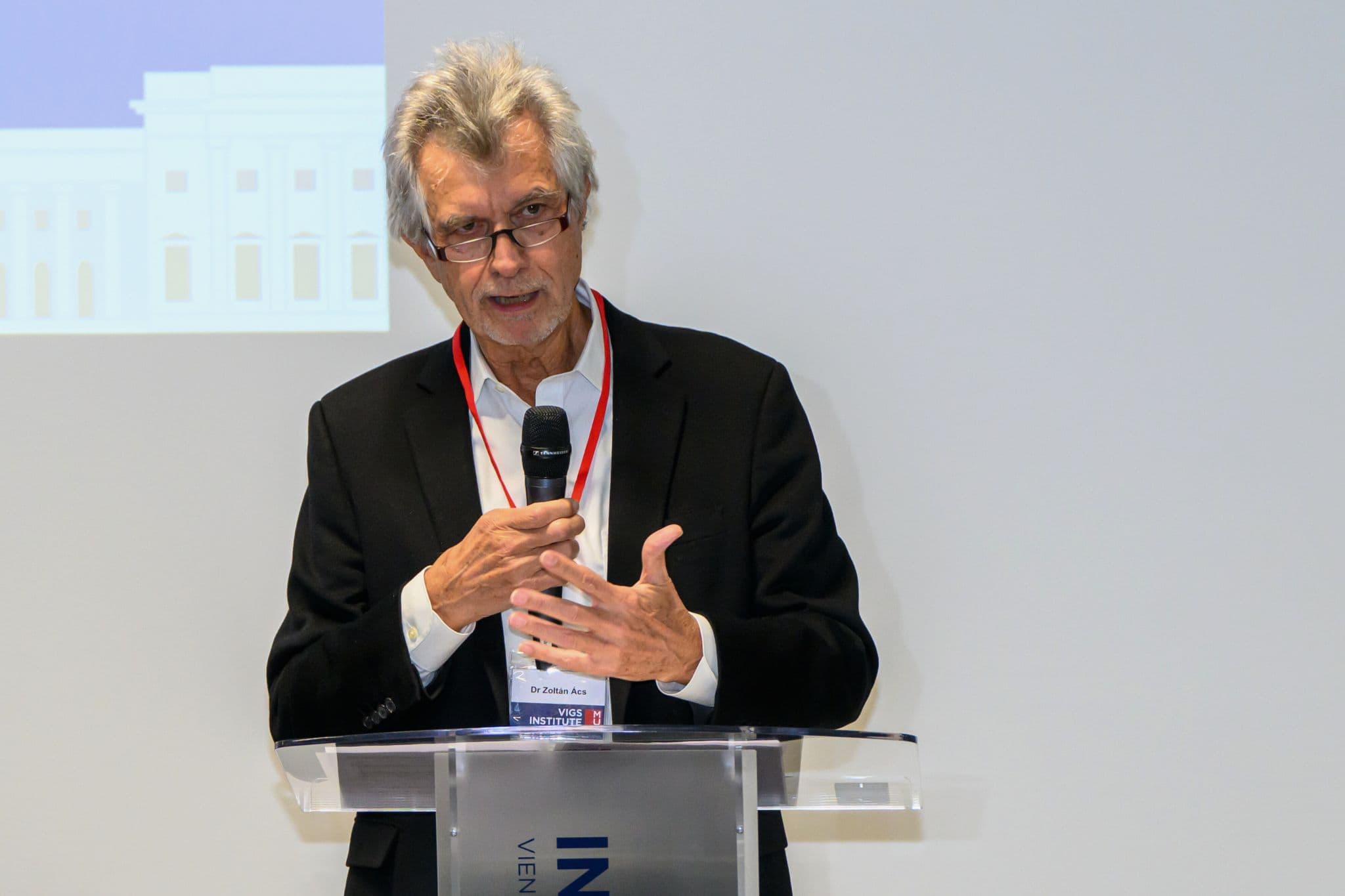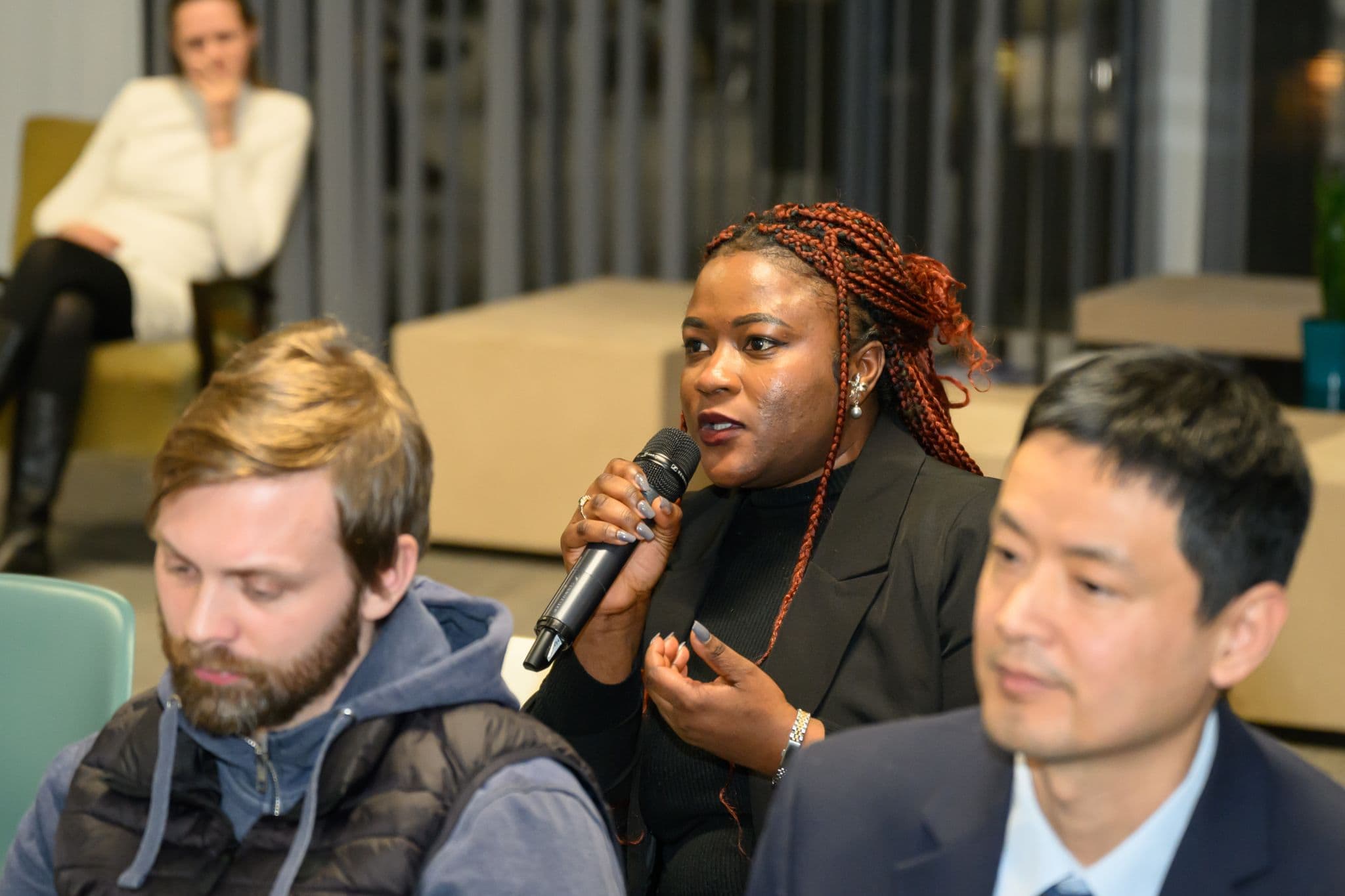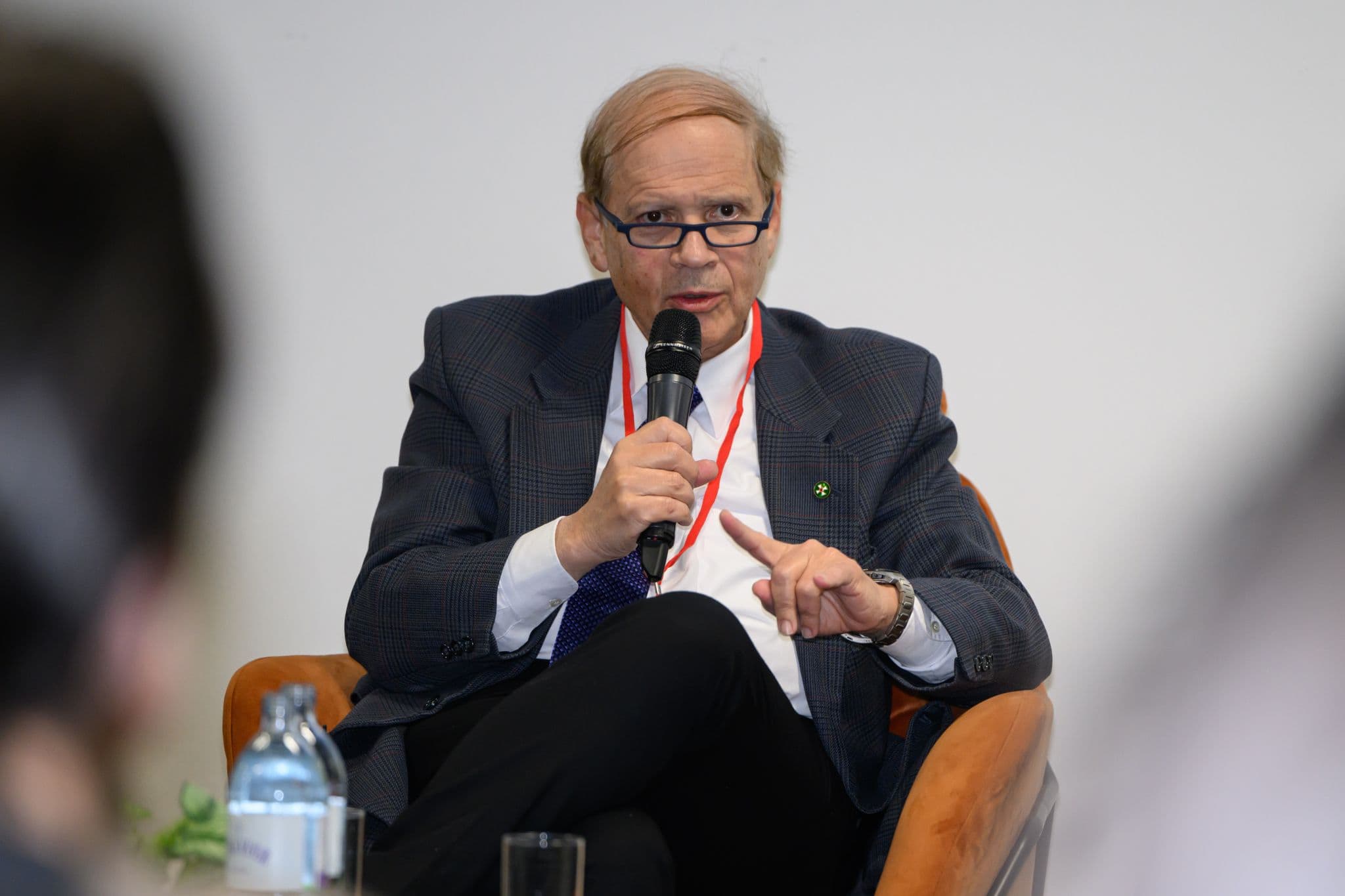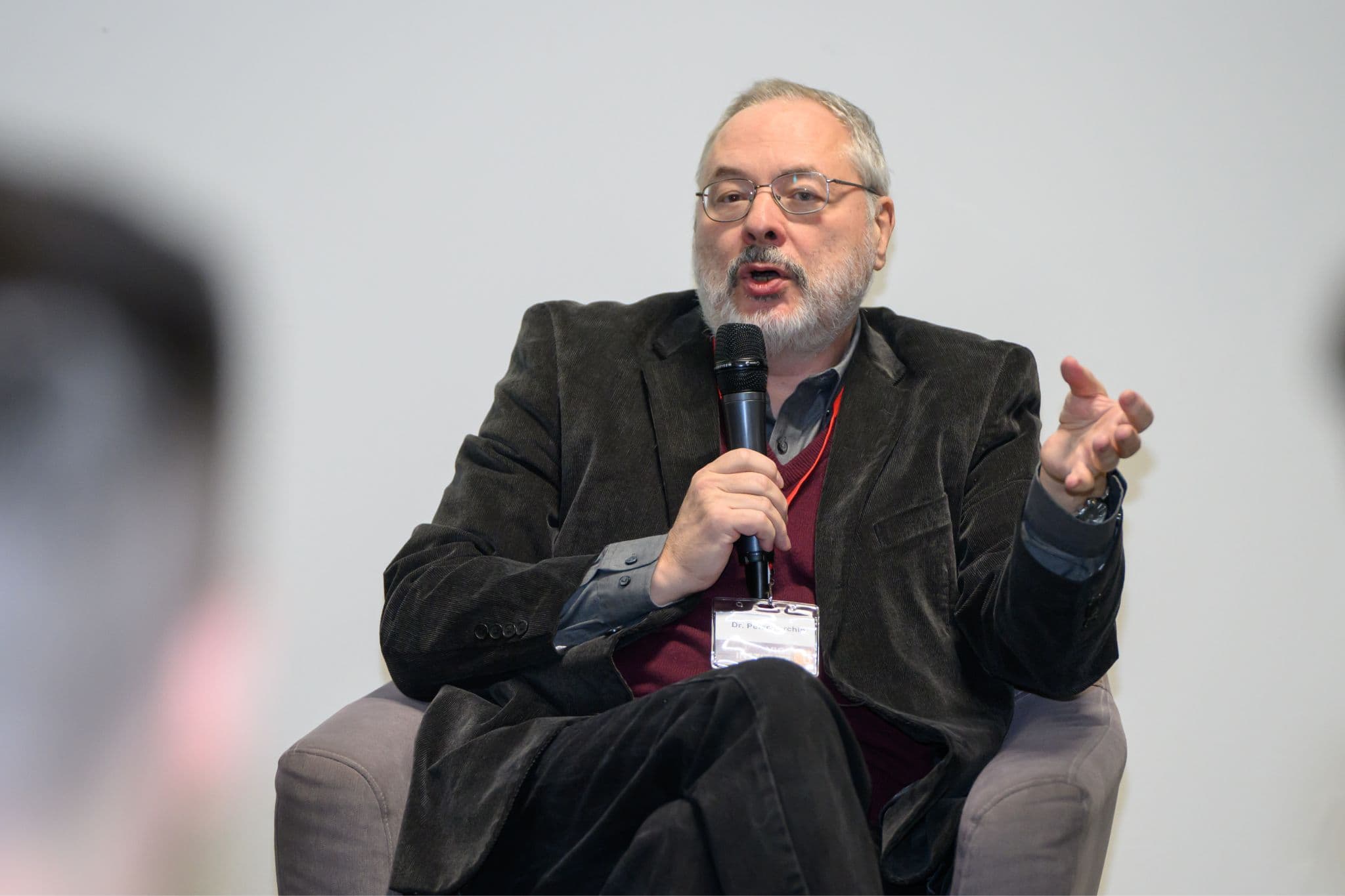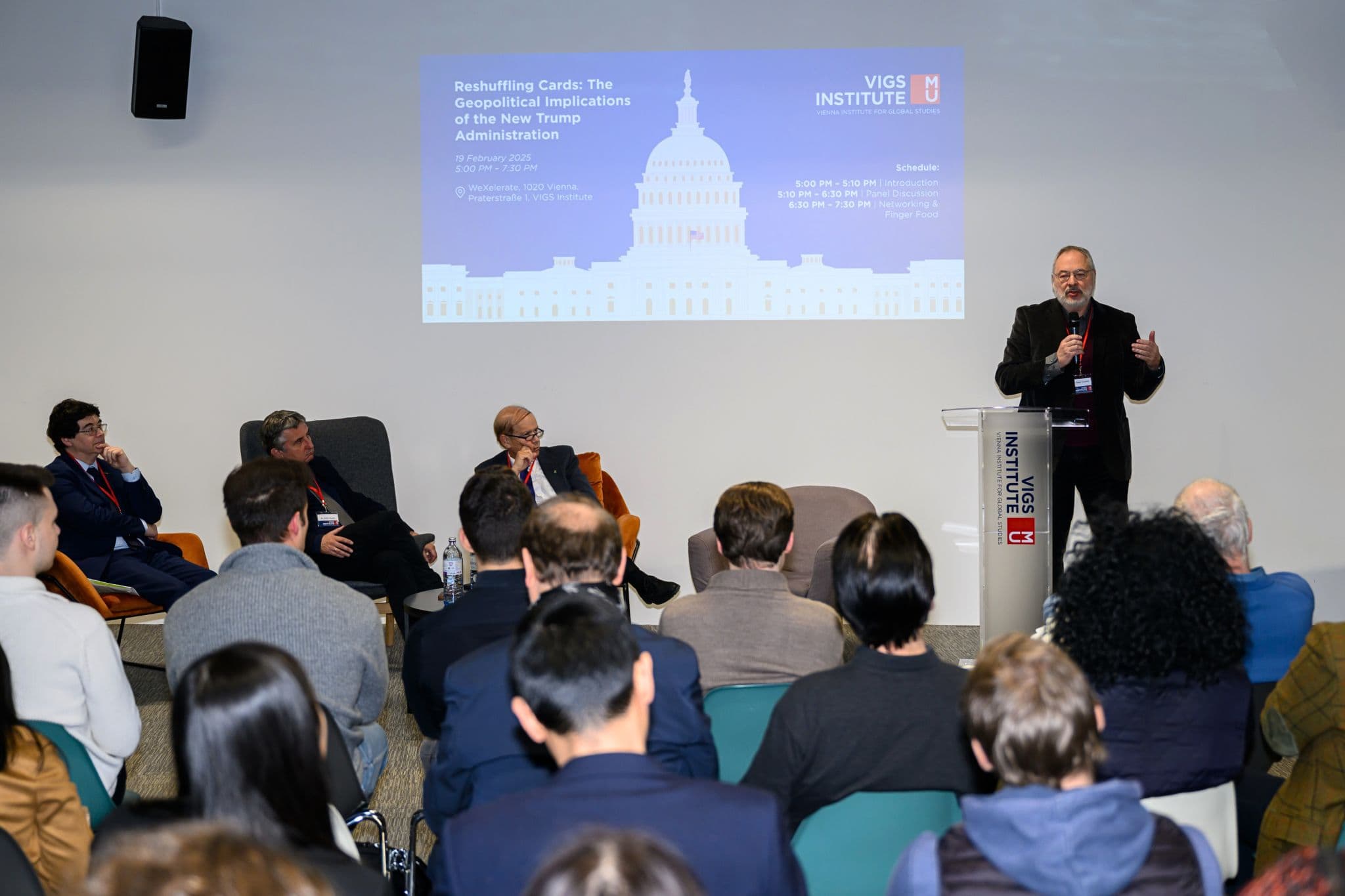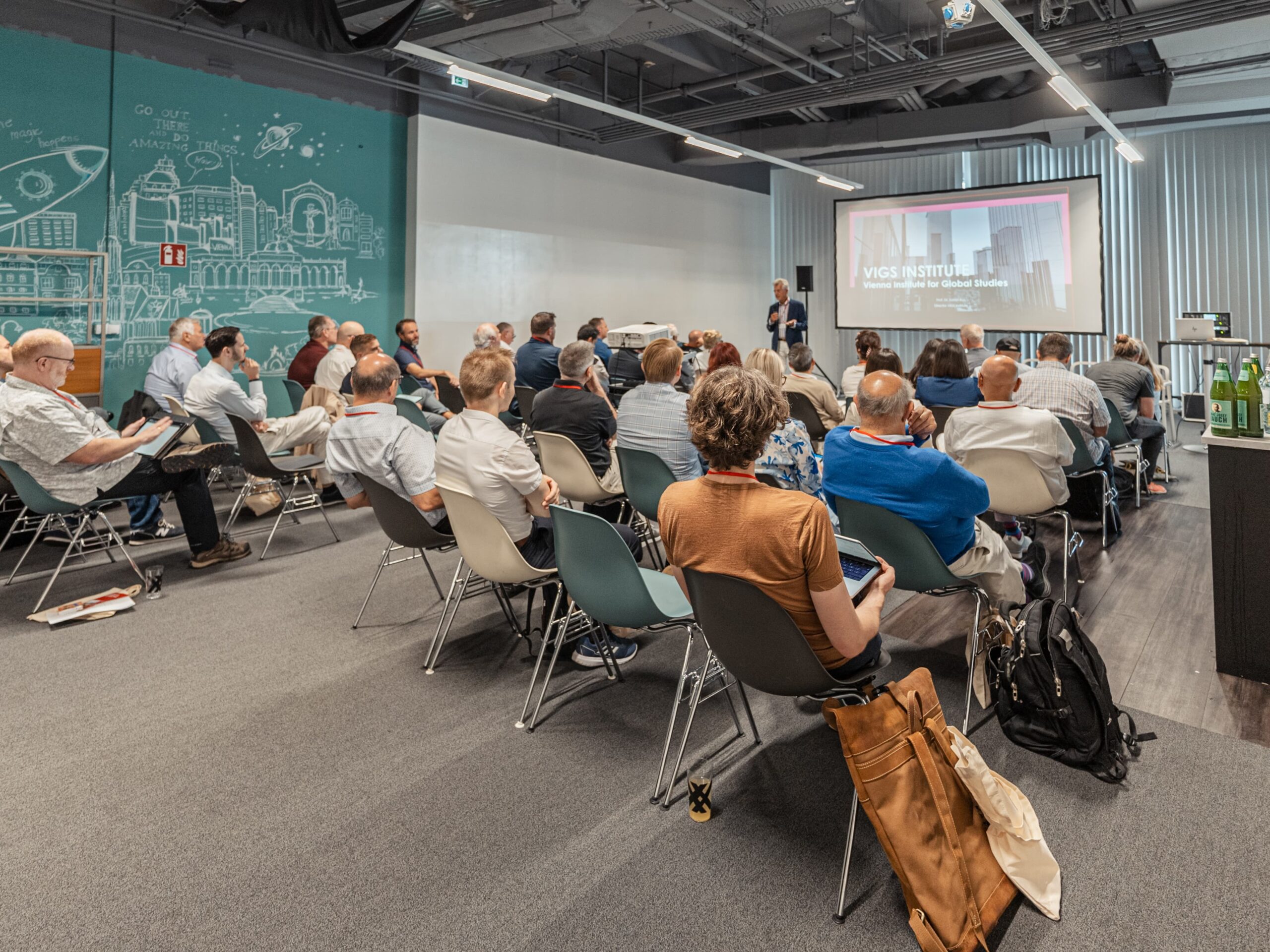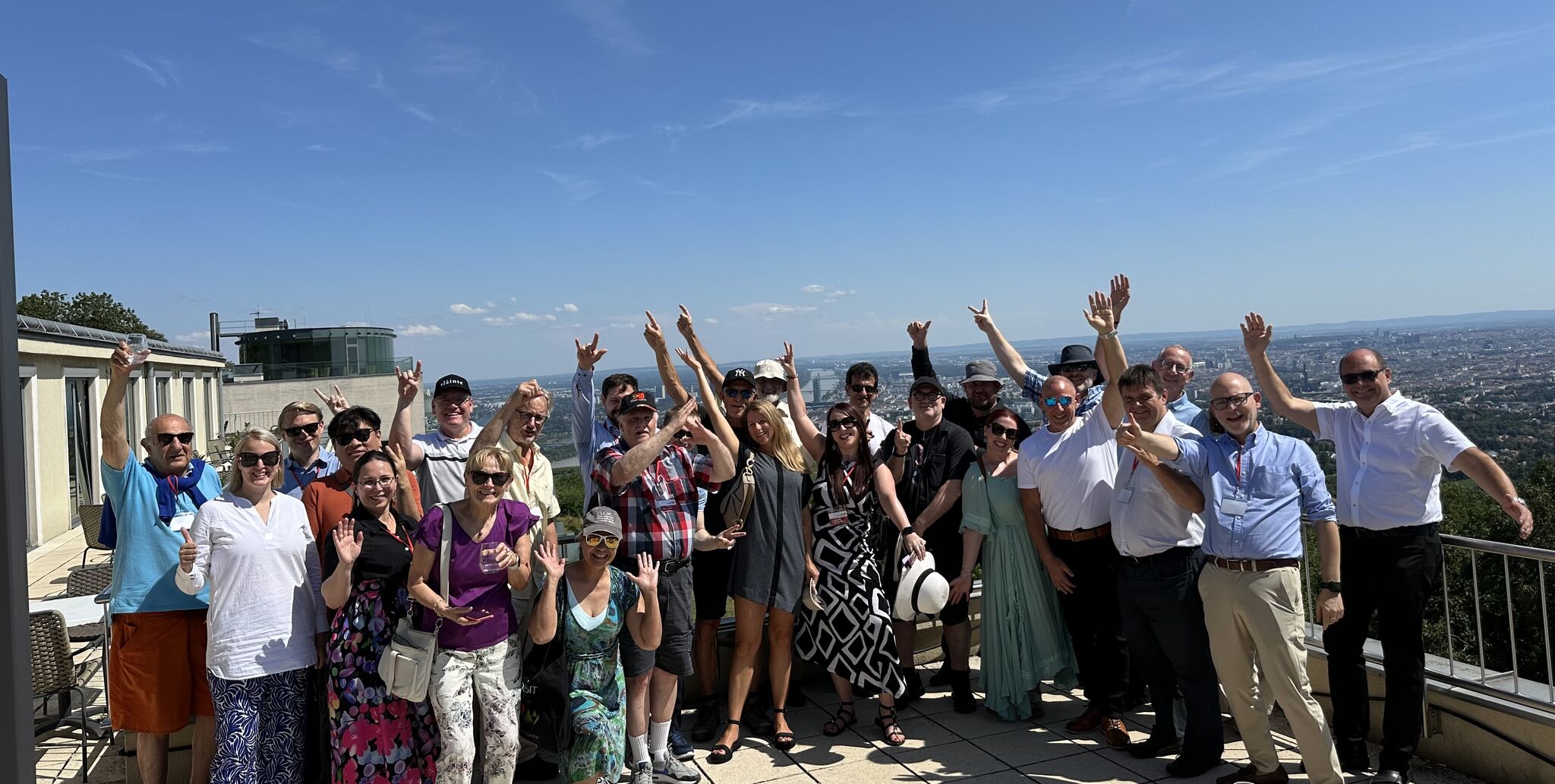The Vienna Institute for Global Studies (VIGS) successfully hosted an exclusive panel discussion titled “Reshuffling Cards: The Geopolitical Implications of the New Trump Administration” at the WeXelerate start-up hub in Vienna. The event brought together top diplomats, policy experts, and complexity scientists to analyze the challenges and opportunities shaping global power dynamics following the recent U.S. presidential inauguration.
The Global Shift: What It Means for Us
Opening the discussion, Prof. Dr. Zoltán Ács, Director of VIGS, emphasized the need to understand the deeper forces shaping global politics.
“Geopolitics is a complex puzzle—every move sends ripples across economies, societies, and borders. Our role is to decode these patterns and offer clarity,” he said.
Founded to explore the intersections of technology, AI, well-being, and international relations, VIGS cuts through the noise to analyze data, history, and structural dynamics.
“Our job is not to take sides but to make sense of global shifts,” Ács added.
The event, aligned with VIGS’s mission of fostering interdisciplinary dialogue, brought together leading experts to examine the evolving landscape of U.S. foreign policy and its global impact.
Where Do We Go from Here?
In closing, Prof. Dr. Ács left the audience with a challenge:
“At VIGS, our motto is simple – ‘The Next 25.’ We can’t afford short-term thinking anymore; the next 25 years will shape how we survive and thrive in the 21st century. Events like this drive the conversation forward, helping us decode the world’s most complex challenges and chart a course for a sustainable future.”
VIGS extends its gratitude to all speakers, partners, and participants who contributed to this vital discussion. Following the panel, attendees had the opportunity to engage directly with experts through a Q&A session. The evening concluded with a networking session, allowing participants to continue conversations, exchange insights, and build connections with each other.
About the Vienna Institute for Global Studies (VIGS):
The Vienna Institute for Global Studies (VIGS), founded by Prof. Dr. Zoltán Ács, is a leading interdisciplinary research hub in Vienna. Inspired by the Santa Fe Institute and the RAND Corporation, VIGS Institute leverages complexity science to explore global challenges and develop forward-thinking solutions for the 21st century. Its core focus areas include international relations, wellness and well-being, entrepreneurial ecosystems, and technological advancement—fostering insights that shape policy, innovation, and global cooperation.
In-Depth Discussion from Leading Experts
The panel featured a dynamic range of voices, each offering distinct perspectives on international relations, economic strategies, and societal shifts:
• Dr. Peter Turchin, complexity scientist, Project Leader at the Complexity Science Hub–Vienna, and author of the bestselling End Times book, warned that the U.S. is facing elite overproduction as a key driver of social instability.
“Elite overproduction—when too many elites compete for too few positions of power—fractures society. It’s like musical chairs, but with way more players and the same number of chairs,” he explained.
• Yacov Hadas-Handelsman, former ambassador to Germany, Hungary, Jordan, Qatar, the EU, and NATO, explored the global consequences of U.S. foreign policy shifts. Highlighting the intersections between climate change, migration, and geopolitics, he noted:
“Migration is no longer just a political issue—it’s a climate issue, an economic issue, and above all, a human issue. We need more adaptable, forward-thinking policies to address this.”
• Dr. Attila Demkó, Head of Strategic Foresight at the John Lukacs Institute and former Hungarian diplomat, pointed to growing security risks and strategic missteps.
“The U.S. is rethinking its global role, and Europe can either adapt or risk becoming irrelevant.”
• MMag. Christian Lothar Mandl, Head of Europapolitik at the Austrian Economic Chamber, examined U.S.-EU trade dynamics, warning of potential economic risks.
“Trade policy has always been a tool of foreign policy. Europe must navigate this new landscape carefully, balancing economic interests with long-term geopolitical stability.”
Big Picture: Why Does It Matter?
The panel explored several interconnected global challenges, including:
• The future of globalization in a potentially multipolar world order.
• Technological diplomacy as a key driver of innovation and competitiveness.
• The role of climate change and demographic shifts in shaping migration and global security.
• The long-term impact of U.S. foreign policy on Europe, Asia, and emerging economies.
Throughout the discussion, speakers highlighted the importance of strategic foresight and interdisciplinary collaboration in addressing these evolving issues.

